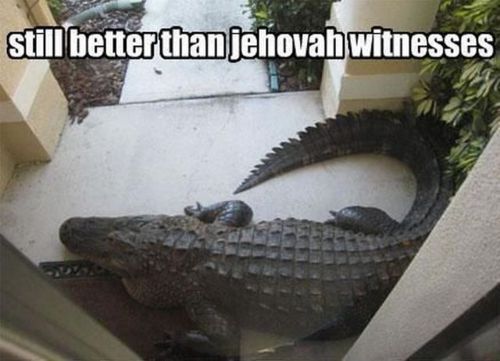| Lines from the Lord's Prayer, in various languages. From the Eucharist Door at the Glory Facade of the Sagrada Família in Barcelona, Spain. |
It's Lent in Rome. That means it's time for one of the great Roman traditions: station churches. Each morning, English-speaking pilgrims walk to a different church for Mass. This morning, on the way to St. Anastasia's, I was once again struck by a line in the Our Father: “forgive us our trespasses as we forgive those who trespass against us.” That's a hard thing to pray, It doesn't leave a lot of wiggle room. Even the Catechism seems shocked by it:
This petition is astonishing. If it consisted only of the first phrase, "And forgive us our trespasses," it might have been included, implicitly, in the first three petitions of the Lord's Prayer, since Christ's sacrifice is "that sins may be forgiven." But, according to the second phrase, our petition will not be heard unless we have first met a strict requirement. Our petition looks to the future, but our response must come first, for the two parts are joined by the single word "as."Upon arriving at Mass, I discovered that the Gospel for the day was Matthew 6:7-15, in which Christ introduces this prayer. That seemed too serendipitous to simply be a coincidence. Then Archbishop Di Noia, O.P., got up to preach the homily, and it was all about how to understand this particular petition. So here goes: I think that the Lord's Prayer is flatly inconsistent with sola fide, the Protestant doctrine of justification by faith alone. Here's why.
In this line of the Lord's Prayer, Jesus seems to be explicitly conditioning our forgiveness on our forgiving. Indeed, it's hard to read “forgive us our trespasses as we forgive those who trespass against us” any other way. What's more, after introducing the prayer, Jesus focuses on this line, in particular. Here's how He explains it (Matthew 6:14-15):
For if you forgive men their trespasses, your heavenly Father also will forgive you; but if you do not forgive men their trespasses, neither will your Father forgive your trespasses.So to be forgiven, you must forgive. If you do, you'll be forgiven. If you don't, you won't be. It's as simple as that.
So Christ has now told us three times that our being forgiven is conditioned upon our forgiving, using the most explicit of language. How does Luther respond to this? “God forgives freely and without condition, out of pure grace.” And what is Calvin's response? “The forgiveness, which we ask that God would give us, does not depend on the forgiveness which we grant to others.”
Their theology forces them to deny Christ's plain words, since admitting them would concede that we need something more than faith alone: we also need to forgive our neighbors. They've painted themselves into a corner, theologically. To get out of it, they change this part of the Our Father into either a way that we can know that we're saved (Luther's approach: that God “set this up for our confirmation and assurance for a sign alongside of the promise which accords with this prayer”) or a non-binding moral exhortation (Calvin's: “to remind us of the feelings which we ought to cherish towards brethren, when we desire to be reconciled to God”).
Modern Protestants tend to do the same thing with these verses, and countless other passages in which Christ or the New Testament authors teach us about something besides faith that's necessary for salvation. We see this particularly in regards to the Biblical teaching on the saving role of Baptism (Mark 16:16; 1 Peter 3:21) and works (Matthew 25:31-46; Romans 2:6-8; James 2). There are three common tactics employed:
- Reverse the causality. If a passage says that you must do X in order to be saved, claim that it really means that if you're saved, you'll just naturally do X. Thus, X is important for showing that you're saved, but it doesn't actually do anything, and certainly isn't necessary for salvation (even if the Bible says otherwise: Mark 16:16).
- No True Scotsman. If Scripture says that someone believed and then lost their salvation (like Simon the Magician in Acts 8, or the heretics mentioned in 2 Peter 2), say that they must not have ever actually believed (even if the Bible says the opposite: Acts 8:13, 2 Peter 2:1, 20-22).
- Spiritualize the passage into oblivion. If the Bible says that Baptism is necessary for salvation, argue that this is just a “spiritual” Baptism that means nothing more than believing. And if you need to get around the need to be “born of water and the Spirit” (John 3:5) spiritualize this, too, to get rid of the need for water. Reduce everything to a symbol, or a metaphor for faith.
In fairness to both the Reformers and to modern Protestants, they want to avoid any notion that we can earn God's forgiveness or our salvation. This doesn't justify denying or distorting Christ's words, but it's a holy impulse. And in fact, it was the theme of Abp. Di Noia's homily this morning. Grace is a gift, and what's more, grace is what enables us to forgive others. This point is key, because it explains why Christ isn't teaching something like Pelagianism.
God freely pours out His graces upon us, which bring about both (a) our forgiveness, and (b) our ability to forgive others. But we can choose to accept that grace and act upon it, or to reject it. And that decision has eternal consequences. Such an understanding is harmonious with Christ's actual words, while avoiding any idea that we possess the power to earn our salvation.
So both Catholics and Protestants reject Pelagianism, but there's a critical difference. Catholics believe that grace enables us to do good works, whereas Protestants tend to believe that grace causes us to do good works. To see why it matters, consider the parable of the unmerciful servant, Matthew 18:21-35. In this parable, we see three things happen:
- A debtor is forgiven an enormous debt of ten thousand talents (Mt. 18:25-27). Solely through the grace of the Master (clearly representing God), this man is forgiven his debts (sins). He is in a state of grace.
- This debtor refuses to forgive his neighbor of a small debt of 100 denarii (Mt. 18:28-30). The fact that he's been forgiven should enable the debtor to be forgiving: in being forgiven, he's received the equivalent of 60,000,000 denarii, and he's certainly seen a moral model to follow. But he turns away from the model laid out by the Master, and refuses to forgive his neighbor.
- This debtor is unforgiven by his Master (Mt. 18:32-35). The kicker comes at the very end: “And in anger his lord delivered him to the jailers, till he should pay all his debt. So also my heavenly Father will do to every one of you, if you do not forgive your brother from your heart.”






